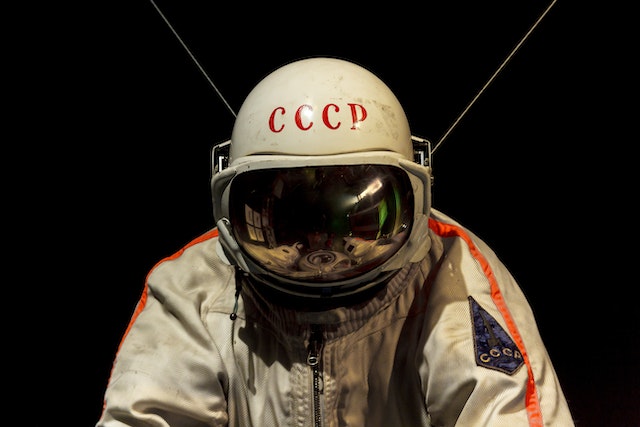
Why did the USSR collapse? There are a myriad of reasons. Not one of them is exclusive and it could be said that were only one of these to have happened, the USSR could have continued to this day. Let’s look at 6 of them: war in Afghanistan, the price of oil, the Chernobyl nuclear disaster, the failing economy, Mikheil Gorbachev’s policies, and opposition in the USSR republics.
The USSR came into existence in 1922. Lenin wanted to change the name but Stalin was against it, although he ultimately relented. The English Union of Soviet Socialist Republics comes from the Russian CCCP (Союз Советских Республик Европы – Sojuz Sovjetskih Respublik). At its peak it covered 22.4 million square km and had 290 million people. It was dissolved on 26th December 1991 and was replaced by 15 separate countries. Here are a few of the reasons why it collapsed.
The USSR had been involved in a war in Afghanistan that was swallowing money. In 1979, the USSR started to fight in Afghanistan to control the border and the oil. It was a war that, on paper, the USSR should have won, but it didn’t go the way they thought. As the USA would learn a few decades later, guerilla war in a country where anyone can be a soldier is very difficult to win. By 1989, the USSR had thrown $50 billion it couldn’t afford at the war.
The economy of the USSR was, as it is now, very much dependent on the price of oil. In 1980, the price of oil was $120 a barrel. By 1986, the price had fallen to $24 a barrel. The USSR had to borrow a lot of money to shore up its economy and a lot of that money was borrowed from Western creditors.
The war and the price of oil was hurting the USSR, but not nearly as much as the Chernobyl Nuclear Disaster did. In 1986, reactor number 4 at the Chernobyl nuclear power plant exploded during a safety test. Radioactive dust started to spread across Europe, carried on the winds. The USSR immediately tried to cover up the accident and they only admitted there had been an accident 48 hours after it had happened, in the face of rising international pressure. The disaster and the resultant clean up ended up costing the USSR over $235 billion. Again, more money that they didn’t have. However, more than the financial cost was the loss of people and the loss of confidence in the government. If the government couldn’t protect its people from accidents like this and then lied, what else had it done?
All of these things were having their toll on the economy and people were starting to suffer. There was a shortage of goods in shops, and it was common to have to queue for a long time to buy anything. Common foods, such as bread, milk, and meat were unavailable. There was a large black market and there are estimates that the black market was worth 10% of Russia’s GDP. All of this was coupled with a lot of corruption. Officials could hide food and then sell it on the black market for a profit. People could no longer see why communism was good.
Mikheil Gorbachev came to power in 1985. He wasn’t elected. There were no elections until Yeltsin was elected in 1991. However, Gorbachev was a reformer and he set about trying to fix the problems of the USSR. He introduced two concepts that might have improved things, but they destroyed the USSR. Those were “perestroika” (restructuring) and “glasnost” (openness). Perestroika, rather than improving the country, caused more inequality. Gorbachev was never consistent and introduced roughly ten different types of reforms and none of them were effectively administered because they would have harmed the elite in the communist party. Only the new rules that didn’t harm the party members were applied. Gorbachev was fought at every step. His second policy “glasnost” might have been even more responsible for the collapse of the USSR. He freed the media from state control and stopped censorship. The spread of information and criticism of the communist party grew in a way that had never been seen before in the USSR. People started to question their lives and the state.
Glasnost allowed the media in all of the USSR states to flourish as well. Criticism grew. Moscow had lost control of the media. Unrest and protests began to grow in each of the republics governed by Moscow. Poland, Hungary, Romania, and Czechoslovakia wanted to leave. Once the Berlin Wall fell in 1989, the people living in the Union of Soviet Republics realized that they didn’t have to listen to Moscow anymore, and the end was neigh.
Gorbachev had started the process, but it was Yeltsin, his successor, who signed the document that ended the USSR. The 15 republics all became separate countries. Putin, who took control of Russia after Yeltsin, was able to undo glasnost and used his control over the oligarchs that controlled the media to rein it in. Today, there is no free press in Russia. And this is what I learned today.
Photo by nikita: https://www.pexels.com/photo/ussr-cosmonaut-uniform-on-black-background-6162307/
Sources
https://www.thecollector.com/fall-of-the-soviet-union-mikhail-gorbachev/
https://history.state.gov/milestones/1989-1992/collapse-soviet-union
https://www.britannica.com/story/why-did-the-soviet-union-collapse
https://en.wikipedia.org/wiki/Dissolution_of_the_Soviet_Union
https://en.wikipedia.org/wiki/Mikhail_Gorbachev
https://en.wikipedia.org/wiki/Soviet_Union
https://nationalinterest.org/feature/could-the-soviet-union-have-survived-the-21st-century-21817
https://en.wikipedia.org/wiki/Foreign_trade_of_the_Soviet_Union
https://www.iaea.org/newscenter/focus/chernobyl/faqs

Pingback: #684 Why was the Manhattan Project called the Manhattan Project? | I Learned This Today